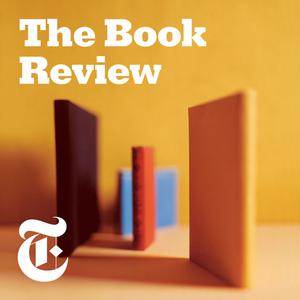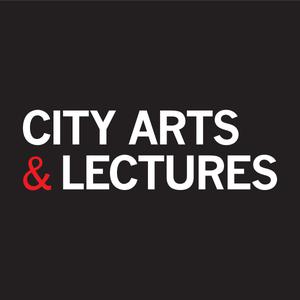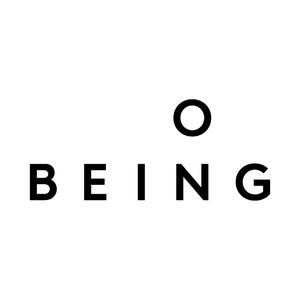
Big Books & Bold Ideas with Kerri Miller
Minnesota Public Radio
Where Readers Meet Writers. Conversations on books and ideas, Fridays at 11 a.m.
- 51 minutes 31 secondsOn the brink of the inauguration, historians reflect on America's trajectory
President-elect Donald Trump will be inaugurated for a second term on Monday, Jan. 20.
So this week, Big Books and Bold Ideas asked two historians who’ve written about America’s past to reflect on America’s future and give us a broader view of where we are. They point to eras in our past that predict our present. They also discuss what they’ll be watching for as Trump returns to the Oval Office.
Guests:
Carol Anderson a historian and professor of African-American studies at Emory University. She’s the author of many books, including “White Rage: The Unspoken Truth of Our Racial Divide” and “One Person, No Vote: How Voter Suppression is Destroying our Democracy.”
Lindsay Chervinsky is a presidential historian, the executive director of the George Washington Presidential Library and the author of “Making the Presidency: John Adams and the Precedents that Forged the Republic.”
If you missed it, be sure to check out Big Books and Bold Ideas 2024 series on the state of American democracy. It kicked off with historian Heather Cox Richardson, the author of “Democracy Awakening,” and included conversations with Elizabeth Cobbs, Frank Bruni, Eboo Patel, Sharon McMahon and others.
Subscribe to Big Books and Bold Ideas with Kerri Miller podcast on Apple Podcasts, Google Podcasts, RSS or anywhere you get your podcasts.
Subscribe to the Thread newsletter for the latest book and author news and must-read recommendations.
17 January 2025, 5:00 pm - 57 minutes 32 secondsNaturalist Robin Wall Kimmerer on her new book, ‘The Serviceberry’
Robin Wall Kimmerer embodies an abundance mindset.
The naturalist and author sees the world through the lens of her Anishinaabe ancestors, where interdependence is reality, and humans are neither above nor below the natural world. We are just one part, kin to every animal and plant and stream.
Her beloved book, “Braiding Sweetgrass,” laid out this philosophy. Published in 2013, it enjoyed a gentle rise to public consciousness, not jumping onto the bestseller list until six years after publication. But it remains there to this day, a beloved devotional to millions.
Now Kimmerer is back “The Serviceberry” — with a slim book that expounds on one of her core tenants: that nature’s generosity is an invitation to explore our own.
Kimmerer joined Kerri Miller on this week’s Big Books and Bold Ideas to take us all on a virtual field trip to behold the humble serviceberry, where we get a lesson on generosity, gratitude and relationship.
Guest:
Robin Wall Kimmerer is an enrolled member of the Citizen Potawatomi Nation, a plant ecologist, a professor and an author. Her newest book is “The Serviceberry: Abudnance and Reciprocity in the Natural World.”
Subscribe to Big Books and Bold Ideas with Kerri Miller on Spotify, Apple Podcasts, RSS or anywhere you get your podcasts.
Subscribe to the Thread newsletter for the latest book and author news and must-read recommendations.
10 January 2025, 5:00 pm - 51 minutes 46 secondsWhy some college students aren’t reading books
In Nov. 2024, The Atlantic’s cover article rang alarm bells among readers, writers, college professors and parents alike. The article was headlined: The Elite College Students Who Can’t Read Books.
The premise is that many students admitted to elite colleges arrive having read very few books all the way through.
“It’s not that they don’t want to do the reading,” says the article. “It’s that they don’t know how. Middle and high schools have stopped asking them to.”
This week on Big Books and Bold Ideas, two writers who have also been college literature professors share their views on the article’s argument. What have they seen in their own students? And how can deep reading be encouraged?
Guests:
Karen Swallow Prior is an English professor, a monthly columnist for Religion News Service and the author of, among other books, “On Reading Well: Finding the Good Life Through Great Books.”
Taiyon Coleman is dean of liberal arts and academic foundations at North Hennepin Community College. Her latest book is “Traveling without Moving,” which you can also hear about on a past episode of Big Books and Bold Ideas.
Subscribe to Big Books and Bold Ideas with Kerri Miller on Spotify, Apple Podcasts, RSS or anywhere you get your podcasts.
Subscribe to the Thread newsletter for the latest book and author news and must-read recommendations.
3 January 2025, 5:00 pm - 56 minutes 22 secondsChristopher Bollen unleashes ‘Havoc’ with his new thriller
Maggie Burkhardt is 81, a deceptively sweet former Wisconsinite who now resides in Egypt at a once-fashionable hotel. She’s landed there somewhat mysteriously, but hotel staff and guests alike are charmed by her eccentric wit — until they find themselves on the receiving end of her “help.”
Widowed Maggie believes it is her life’s mission to fix what she perceives as broken. Or as puts it: “I liberate people who don’t know they’re stuck. … I change people’s lives for the better whether they see it that way or not.”
If that sounds ominous, that’s on purpose. Christopher Bollen wanted to crank the lines of suspense tight for his newest novel. And when Maggie meets her match in an equally troubled little boy and the two wage battle, this thriller takes readers on the wildest of rides.
Bollen joined host Kerri Miller on this week’s Big Books and Bold Ideas to dive into the creation of “Havoc.” They talk about the destabilizing force of loneliness, how both the elderly and the young are conventionally overlooked, and how Bollen managed to channel the voice of 81-year-old Maggie as he set about to write.
Guest:
Christopher Bollen is the author of many books, including: ”A Beautiful Crime” and “Orient.” His new novel is “Havoc.”
Subscribe to Big Books and Bold Ideas with Kerri Miller on Spotify, Apple Podcasts, RSS or anywhere you get your podcasts.
Subscribe to the Thread newsletter for the latest book and author news and must-read recommendations.
27 December 2024, 5:00 pm - 51 minutes 29 secondsA bereaved single father navigates a new path forward in ‘I Will Do Better’
Charles Bock is honest from the beginning of his new memoir, “I Will Do Better”: He never wanted to be a dad. He was much more interested in pursuing his literary dreams than shepherding a child to adulthood.
But his wife really wanted a baby. And he didn’t think it would be right to tell her no.
“In the book, I say: She wants to be a mom? OK. Let her. I’ll continue with my ambitions. On weekends, I’ll put on the Baby Bjorn, tell friends ‘we’re parenting,’ using that plural. That’s what I thought I was going to do. I was going to put in my time, let [my wife] handle the heavy lifting.”
But then Diana, Bock’s wife, was diagnosed with an advanced form of leukemia when Lily was just six months old. She died a few days before Lily’s third birthday. Bock had to step up.
As he tells Kerri Miller on this week’s Big Books and Bold Ideas, his new memoir “is about the emotional and physical journey, of this little girl with no mom who wants to go to the ball, and I have to grow up and be man enough to take her and handle it.”
It’s a conversation about parenting, about heartbreak, about maturing — and ultimately, about love.
Guest:
Charles Bock is the author of several books, including “Beautiful Children” and “Alice & Oliver.” His new memoir is “I Will Do Better.”
Subscribe to Big Books and Bold Ideas with Kerri Miller on Spotify, Apple Podcasts, RSS or anywhere you get your podcasts.
Subscribe to the Thread newsletter for the latest book and author news and must-read recommendations.
20 December 2024, 5:00 pm - 52 minutes 7 secondsIn her new book, journalist Brigid Schulte asks what if work wasn’t such a grind?
The pandemic shook up the way many of us work. It accelerated change in a system often slow to adapt.
But more change is needed, argues journalist Brigid Schulte. Her new book, “Over Work,” is centered on the idea that work has not really worked for “far too may people for far too long.” Americans increasingly say they are dissatisfied with their jobs and burned out. It’s a bleak setting for employees — and employers.
So how do we make work work? Can the daily grind be transformed?
Schulte joins MPR News host Kerri Miller on this week’s Big Books and Bold Ideas to talk about why we work the way we do and the changes that could make work more productive, autonomous and joyful.
Guest:
Brigid Schulte is a journalist and the director of the Better Life Lab. Her new book is “Over Work: Transforming the Daily Grind in the Quest for a Better Life.”
Subscribe to Big Books and Bold Ideas with Kerri Miller on Apple Podcasts, Google Podcasts, RSS or anywhere you get your podcasts.
Subscribe to the Thread newsletter for the latest book and author news and must-read recommendations.
13 December 2024, 5:00 pm - 53 minutes 31 secondsThe gut's curious history
The gut is all the rage these days. Many an influencer has built a platform on how to keep our digestive systems happy, healthy and moving.
But humans have long fetishized the gut. Doctors and philosophers have deliberated its influence on our emotional stability. Theologians declared it wicked. Disposing of bodily waste in both sanitary and silent ways is a mark of modernity.
Historian Elsa Richardson found it all utterly fascinating. So she wrote a book to probe the organ’s colorful and often boisterous past.
This week, she joins host Kerri Miller on Big Books and Bold Ideas to explore the age-old question: Are we really ruled by our stomachs?
Guest:
Elsa Richardson is a historian at the University of Strathclyde in Glasgow, Scotland. Her new book is “Rumbles: A Curious History of the Gut.”
Subscribe to Big Books and Bold Ideas with Kerri Miller on Apple Podcasts, Google Podcasts, RSS or anywhere you get your podcasts.
Subscribe to the Thread newsletter for the latest book and author news and must-read recommendations.
6 December 2024, 5:00 pm - 48 minutesDr. Marty Makary on medicine's blind spots
If you stopped eating eggs for fear it could raise your cholesterol, or you avoided giving peanuts to your toddler to prevent allergies, or you stayed away from hormone replacement therapy because you were told it could cause breast cancer — you are a victim of what Dr. Marty Makary calls “medical dogma.”
Long known as an iconoclast in the medical community, Dr. Makary’s latest book, “Blind Spots,” examines how health care can go so wrong. He chalks much of it to groupthink and a growing inability for science to identify its own biases.
His diagnosis? Humility.
“Medical science is about transparency and civil discourse. Great ideas and truths have always emerged from a healthy debate within the scientific community,” he tells Kerri Miller on this week’s Big Books and Bold Ideas. “And tragically, what we’ve seen in the modern era is a small group of people making the decisions for everybody — many times with a paternalist and hierarchical philosophy.”
Guest:
Dr. Marty Makary is a surgeon and public health researcher at Johns Hopkins University. His newest book is “Blind Spots: When Medicine Gets It Wrong, and What It Means for Our Health.”
22 November 2024, 5:00 pm - 58 minutes 55 secondsHelen Scales advocates for the ocean in ‘What the Wild Sea Can Be’
When faced with the realities of climate change, marine biologists must hold two competing thoughts simultaneously: The seas are warming, the fish are waning, the corals are bleaching. But that doesn’t mean the global ocean is doomed. After all, this is the planet’s largest ecosystem. It knows how to adapt.
The question is really: Will we enable it or hinder it?
Helen Scales lives at the balance of those two intersecting points. A marine biologist, writer and broadcaster, Scales is honest about the scale of change. But as she tells Kerri Miller on this week’s Big Books and Bold Ideas, she believes it’s not too late. We still have time to figure out how to co-exist sustainably. Her new book, “What the Wild Sea Can Be,” explores practical solutions — like no-fish zones and banning undersea mining — that can give the planet’s oceans time to heal.
Guest:
Helen Scales is a marine biologist, a writer and a storytelling ambassador for the Save Our Seas Foundation. Her newest book is “What the Wild Sea Can Be.”
Subscribe to Big Books and Bold Ideas with Kerri Miller on Apple Podcasts, Google Podcasts, RSS or anywhere you get your podcasts.
Subscribe to the Thread newsletter for the latest book and author news and must-read recommendations.
15 November 2024, 5:00 pm - 51 minutesRichard Powers brings to life the death of the world’s oceans in ‘Playground’
In his 2019 Pulitzer-Prize winning novel, “The Overstory,” Richard Powers imagines a world where only a few acres of virgin forest remain on the continent. A group of strangers band together to protect those few remaining trees, and in the process, discover the trees are communicating with each other.
Powers’ new novel, “Playground,” turns the same eye to the planet’s oceans. As he tells Kerri Miller on this week’s Big Books and Bold Ideas, his hope is that the power of storytelling will animate humans to behold the sea with fresh wonder — and act to preserve it before it’s too late.
“These last three novels of mine are attempts to find ways of telling stories that challenge that separateness or sense of entitlement,” he says, “that sense that we are the essential and perhaps the only interesting game in town and that everything else is a resource for our project.”
Guest:
Richard Powers is the author of fourteen novels, including “The Overstory,” “Bewilderment” and “Orfeo.” His new book is “Playground.”
Subscribe to Big Books and Bold Ideas with Kerri Miller on Apple Podcasts, Google Podcasts, RSS or anywhere you get your podcasts.
Subscribe to the Thread newsletter for the latest book and author news and must-read recommendations.
8 November 2024, 5:00 pm - 1 hour 48 minutesTalking Volumes: Kate DiCamillo
Beloved children’s author Kate DiCamillo published three new books this year: “Ferris,” “Orris and Timble: The Beginning,” and “The Hotel Balzaar.” She has two more coming next year — plus 2025 marks the 25th anniversary of the book that started it all, “Because of Winn-Dixie.”
She is a prolific writer, a lifelong reader and a delightful human. Which made her the perfect guest to close out Talking Volumes celebratory 25th season on Tuesday, Oct. 29.
Talking Volumes: Kate DiCamillo
No stranger to the stage at the Fitzgerald Theater, DiCamillo came with stories and quips. She and host Kerri Miller talked about the impact of Winn-Dixie on DiCamillo’s life, what she knows now that she didn’t know then, and how stories can change your life.
It was an evening full of wonder and laughter. Singer-songwriter Humbird was the special musical guest.
Click here.1 November 2024, 4:00 pm - More Episodes? Get the App
Your feedback is valuable to us. Should you encounter any bugs, glitches, lack of functionality or other problems, please email us on [email protected] or join Moon.FM Telegram Group where you can talk directly to the dev team who are happy to answer any queries.
 The Book Review
The Book Review
 City Arts & Lectures
City Arts & Lectures
 On Being with Krista Tippett
On Being with Krista Tippett
 Poured Over
Poured Over
 NPR's Book of the Day
NPR's Book of the Day
 Fresh Air
Fresh Air